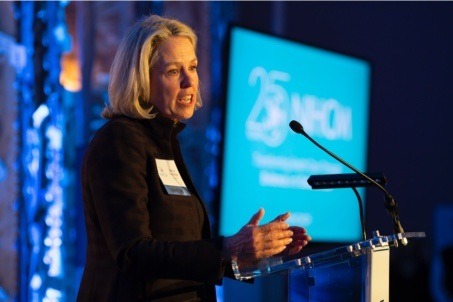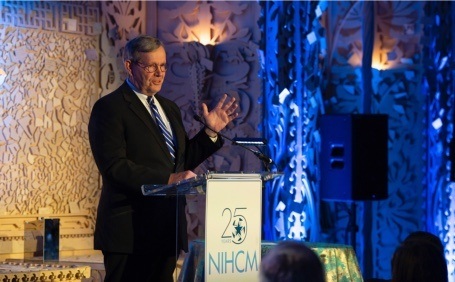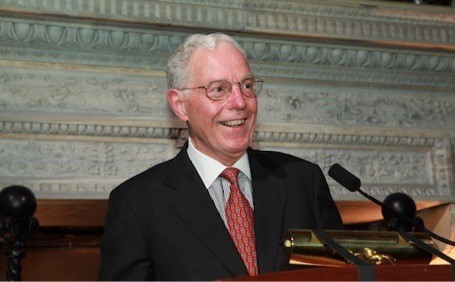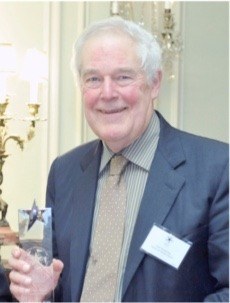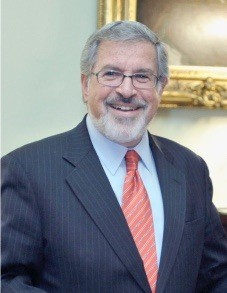Leadership Award
NIHCM Presents the 2020 Uwe E. Reinhardt Outstanding Leadership in Health Care Award


John Forsyth: Game-changing health care leader and pioneer
The impact of John Forsyth’s near quarter-century career at Wellmark, Inc. will be felt by generations of Iowans who may enjoy better health because of his many achievements. As an industry leader and visionary, Forsyth’s ideas often became a model for health care executives nationwide. Throughout his career, he has been known as someone unafraid to challenge conventional wisdom and pioneer creative solutions to improving health for all. A strong and independent thinker, Forsyth built Wellmark into one of the leading health insurance companies in the country. During his 24 years as CEO–the longest serving CEO at Blue Cross Blue Shield nationally–Wellmark’s medical trend and administrative costs ranked among the lowest in the nation and membership grew by more than 60 percent. Yet, some of Forsyth’s most memorable accomplishments may well be those that grew out of his passion for listening to all voices and promoting diversity, inclusion and education, along with the health of his community.
The Uwe E. Reinhardt Outstanding Leadership in Health Care Award is named for a legendary economist and former NIHCM Advisory Board Member, who was often called “a national conscience in policy debates about health care.” Forsyth is the ideal recipient of an honor named to commemorate Reinhardt’s work. Forsyth grew the Wellmark Foundation into the largest, health improvement-focused foundation in Iowa, providing grants of more than $26 million since 1997, including projects addressing food insecurity and initiatives to encourage physical activity. In 2006, he formed the Wellmark Inclusion Council, making the company the first in the nation to offer benefits to domestic partners. He also partnered with Urban Dreams and Des Moines Public Schools to form the Beacon Program, an innovative high school internship initiative that provides students an opportunity to learn as paid interns at Wellmark.
As a NIHCM LLC and NIHCM Foundation Board Member, and former Board chair, Forsyth was always a committed champion of the Foundation’s mission to improve health care across the population. When he became a Wellmark CEO in 1996, he attended just one NIHCM meeting and he was so impressed, he went on to become NIHCM’s longest serving member, providing wise counsel and support over 24 years that helped the organization become incredibly successful at educating health care leaders who can drive action in part because of the evidence base that NIHCM provides. Forsyth’s career includes 26 years at the University of Michigan, ultimately becoming President and CEO of the prestigious University of Michigan Health System. He also serves on the board of the Iowa Business Council, and has been a board member of a number of state and national organizations, including the Greater Des Moines Partnership and the United Way of Central Iowa. In 2017, Forsyth was also inducted into the Iowa Insurance Hall of Fame. He received the 2019 Outstanding Iowa Advocate Award and was presented with the 2020 Ally Award at the 2nd annual dsm LGBTQ Legacy Leader Awards. He holds a bachelor’s degree in business administration and a master’s degree in economics from Michigan State University.
The Uwe E. Reinhardt Outstanding Leadership in Health Care Award
The Outstanding Leadership in Health Care Award was established in 2006 to recognize exceptional leaders who have made significant contributions to health care through public policy, industry, government or humanitarian work. In 2017, the award was renamed in honor of the late Dr. Uwe Reinhardt, a renowned health economist who served as an advisor to NIHCM from 1996 until his passing. He left a profound mark on the work we do and the culture we strive to create.
Past Winners

